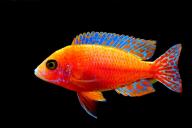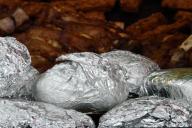If you love puff pastry, then it's time to learn how to bake it at home by yourself!
While puff pastry dough requires some time and skills from a baker, it's not the hardest dough to make, so you can try it at home.
Here are a few tips on how to do it properly.

Mix the flour and salt
In a large mixing bowl, combine the all-purpose flour and salt.
Stir them together using a whisk or a fork until they are well incorporated.
Add the cold water
Gradually pour the cold water into the bowl, while stirring the mixture with a wooden spoon or your hands.
Continue mixing until the dough starts to come together.
Form the dough
Transfer the dough onto a clean and lightly floured surface.
Knead the dough gently for a few minutes until it becomes smooth and elastic.
Shape it into a rectangular block.
Roll out the dough
Dust your rolling pin and the surface with flour to prevent sticking.
Begin rolling out the dough into a thin rectangle.
Aim for a thickness of about ¼ inch. Keep the edges as straight as possible.
Add the butter
Place the unsalted butter on the center of the dough rectangle.
It should be slightly softened but still cold.
Fold the ends of the dough over the butter, enclosing it completely like a packet.
Roll and fold
Now, roll out the dough again, making it longer. Aim for a length about three times the width of the rectangle.
Fold one-third of the dough over the middle third, then fold the remaining third over the top. This is called a "single fold."
Repeat the folding
Turn the dough 90 degrees so that the folded edges are on the sides.
Roll out the dough once more, maintaining the rectangular shape.
Fold it in the same way as before, making sure the edges align neatly. This is the "double fold."
You can repeat this process for additional layers by performing more single and double folds.
Chill the dough
Wrap the dough tightly in plastic wrap to prevent drying and place it in the refrigerator.
Allow it to rest and chill for at least 30 minutes, or up to 1 hour.
This resting time helps relax the gluten and allows the butter to firm up, which is crucial for achieving flaky layers.
Previously, we talked about beef jerky.













